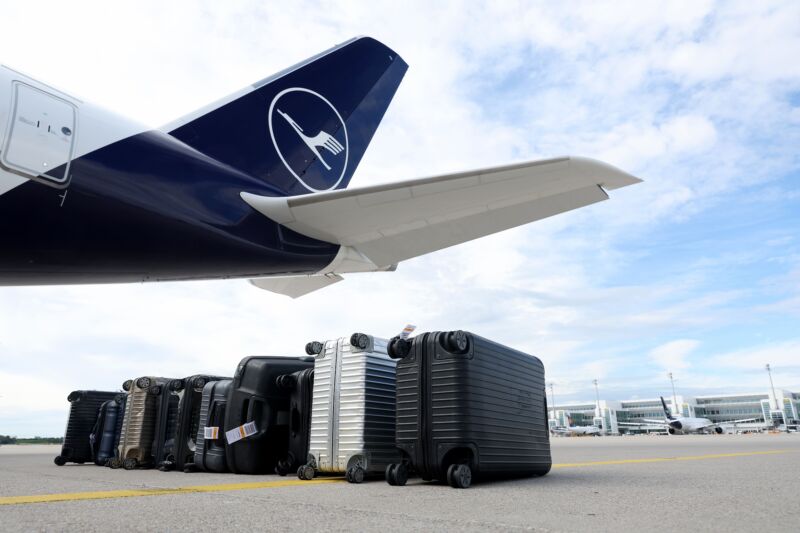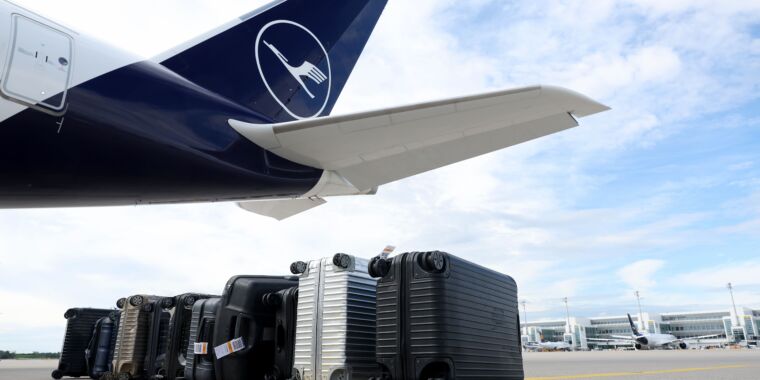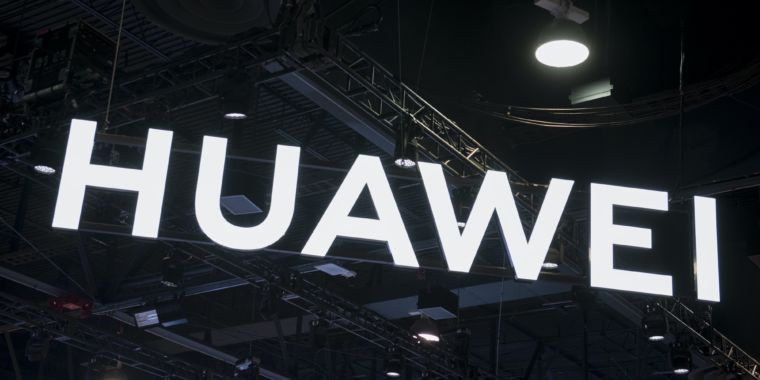
Getty Images
It was a strange fate that Lufthansa and its customers should suffer so much fear and doubt for something as small as an Apple AirTag.
But suffer they did, because the German airline Lufthansa, seemingly misreading an International Civil Aviation Organization (ICAO) regulation, positioned itself this week as the only major airline banning people from tracking their checked luggage with AirTags. A representative for the company tweeted Saturday that it was “banning activated AirTags,” following up Sunday that it was concerned the tiny CR2032 coin batteries and Bluetooth Low Energy (BLE) transmitters in Apple’s tracking devices could be considered “dangerous goods” under ICAO rules.
Outcry, close reading of the relevant sections (part 2, section C) of ICAO guidelines, and accusations of ulterior motives immediately followed. AppleInsider noted that the regulations are meant for lithium-ion batteries that could be accidentally activated; AirTag batteries are not lithium-ion, are encased, and are commonly used in watches, which have not been banned by any airline. The site also spoke with “multiple international aviation experts” who saw no such ban in ICAO regulations. One expert told the site the ban was “a way to stop Lufthansa from being embarrassed by lost luggage.”
Travel blog One Mile at a Time noted early on in the story cycle that Lufthansa was having “an awful summer when it comes to lost bags.” This included both the blog’s own lost luggage story, and an AirTag-powered tweet showing a bag that ended up at a completely different city than the traveler’s itinerary. Lufthansa was far from the only airline that faced bag-handling crises recently, but they were the only firm that could be accused of trying to stymie empirical evidence of such.
@lufthansa just travelled ATH-MUC-CDG Business Class with 2h30 transit. Somehow you’ve lost my bag in between?! Apparently your team can’t find it (your system is down I’m told)! @Apple AirTag says it’s in Toulouse!! Can I please get my bag back before you send it somewhere else? pic.twitter.com/QxwFooJDRl
— KeepOnDiscovering (@mallo75004) August 30, 2021
Numerous people pointed out that Lufthansa, in its online World Shop, sells Apple AirTags. One Ars staffer noted that Lufthansa had previously dabbled in selling a smart luggage tag, one that specifically used RFID and BLE to program an e-ink display with flight information.
On Tuesday, Apple told numerous publications that it, too, disagreed with Lufthansa’s interpretation. It went unsaid but was strongly implied that a company that is often the world’s largest by revenue would take something like air travel regulations into consideration when designing portable find-your-object devices. Notably, you can set a sticker-covered, classic-style suitcase as an AirTag’s icon in the Find My app. Also, the AirTag was first released in April 2021, about 17 months ago.
Representatives from the Federal Aviation Administration and Transportation Security Administration said early this week that Bluetooth-based trackers were allowed in checked luggage. The European Union Aviation Safety Agency said its regulations could “not in itself ban or allow” trackers, but airlines could determine their own guidelines.
On Wednesday, Lufthansa walked back the policy under the cover of “The German Aviation Authorities (Luftfahrtbundesamt),” which the airline said in a tweet “shared our risk assessment, that tracking devices with very low battery and transmission power in checked luggage do not pose a safety risk.” This would seem to imply either that Lufthansa was acting on that authority’s ruling without having previously mentioned it, or that Lufthansa had acted on its own and has now found an outside actor to approve their undoing.
It’s hard to know how exactly to read it. A Lufthansa spokesperson told The New York Times that the company had no further comment beyond that statement. The company’s Twitter and other social accounts have been silent since then.
Lufthansa, having carried this small, round object through a torturous landscape of misunderstandings and bad press, may now seek to return to its existence as a simple global airline. But the journey, hopefully, may have changed them.








